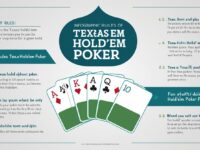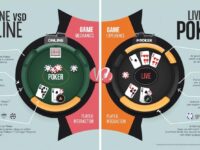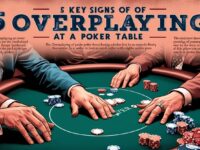Poker is a game deeply rooted in strategy, skill, and a dash of luck. Yet, amidst the calculated decisions and expert plays, there lies an unpredictable element that even the most seasoned players find challenging: variance. Often misunderstood and sometimes underestimated, variance is an inherent part of poker that can make or break a player’s success. This article delves into the intricacies of poker variance, offering insights and strategies to help enthusiasts navigate its tumultuous waves.
Understanding Variance: The Poker Player’s Dilemma
Poker variance refers to the natural fluctuations in a player’s short-term results, which might not accurately reflect their long-term skill level. It is the reason why even the most skilled players can experience losing streaks and why luck seems to favor the inexperienced at times. Variance is the unpredictable force that can make poker both exhilarating and frustrating, as it occasionally allows luck to outweigh skill in the short run. Understanding this concept is vital for any player aiming to master the game, as it separates the temporary ups and downs from true poker prowess.
One of the most significant dilemmas posed by variance is its psychological impact. Players experiencing a downswing might question their abilities, leading to a crisis of confidence that can adversely affect their gameplay. On the flip side, those riding a wave of good luck might develop overconfidence, neglecting the strategic thinking that initially led them to success. Recognizing that variance is an inevitable part of the game can help players maintain a balanced mindset, preventing emotional reactions from dictating their decisions.
Another aspect of variance is its role in bankroll management. Effective bankroll management is crucial for weathering the storms of variance, ensuring that players can withstand losing streaks without facing financial ruin. By setting aside a sufficient bankroll, players can continue to play at a comfortable level without being forced to make desperate moves. Understanding the expected swings and planning accordingly can mitigate the financial stress caused by variance, paving the way for more stable and long-term success in poker.
Strategies to Navigate Poker’s Unpredictable Swings
Navigating poker’s unpredictable swings requires a combination of strategic planning and psychological resilience. One effective strategy is to diversify your play. By participating in different types of games and formats, players can reduce the impact of variance on their overall results. For instance, a player might balance their cash game experiences with tournament play, leveraging the different structures and pacing to smooth out the swings in their results.
Another vital strategy is to continually refine your skills and knowledge of the game. Variance may cause short-term disruptions, but consistently making sound decisions will lead to long-term success. This means studying the game, analyzing hands, and learning from both victories and defeats. By focusing on improving your skill rather than solely on the outcomes, you can maintain a strategic edge that variance cannot easily disrupt.
Lastly, maintaining a healthy mental state is crucial for dealing with variance. This involves accepting both the highs and lows as part of the poker journey, while avoiding emotional decisions driven by temporary swings. Developing techniques to manage stress, such as taking breaks, practicing mindfulness, or even discussing experiences with fellow players, can help build the mental fortitude needed to thrive despite the unpredictability of poker variance.
Embracing variance as an intrinsic element of poker is essential for any enthusiast looking to master the game. By understanding its nature and implementing strategies to navigate its challenges, players can achieve greater stability and success. While variance may never be fully controlled, with the right approach, it can be effectively managed, allowing players to focus on what truly counts: honing their skills and enjoying the captivating world of poker.



















0 Comments